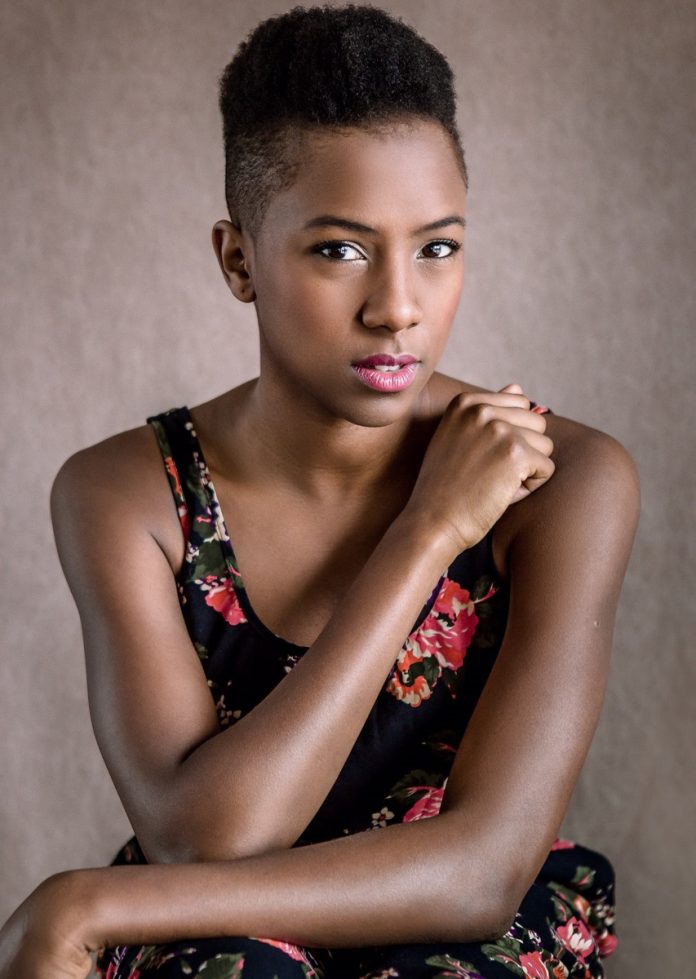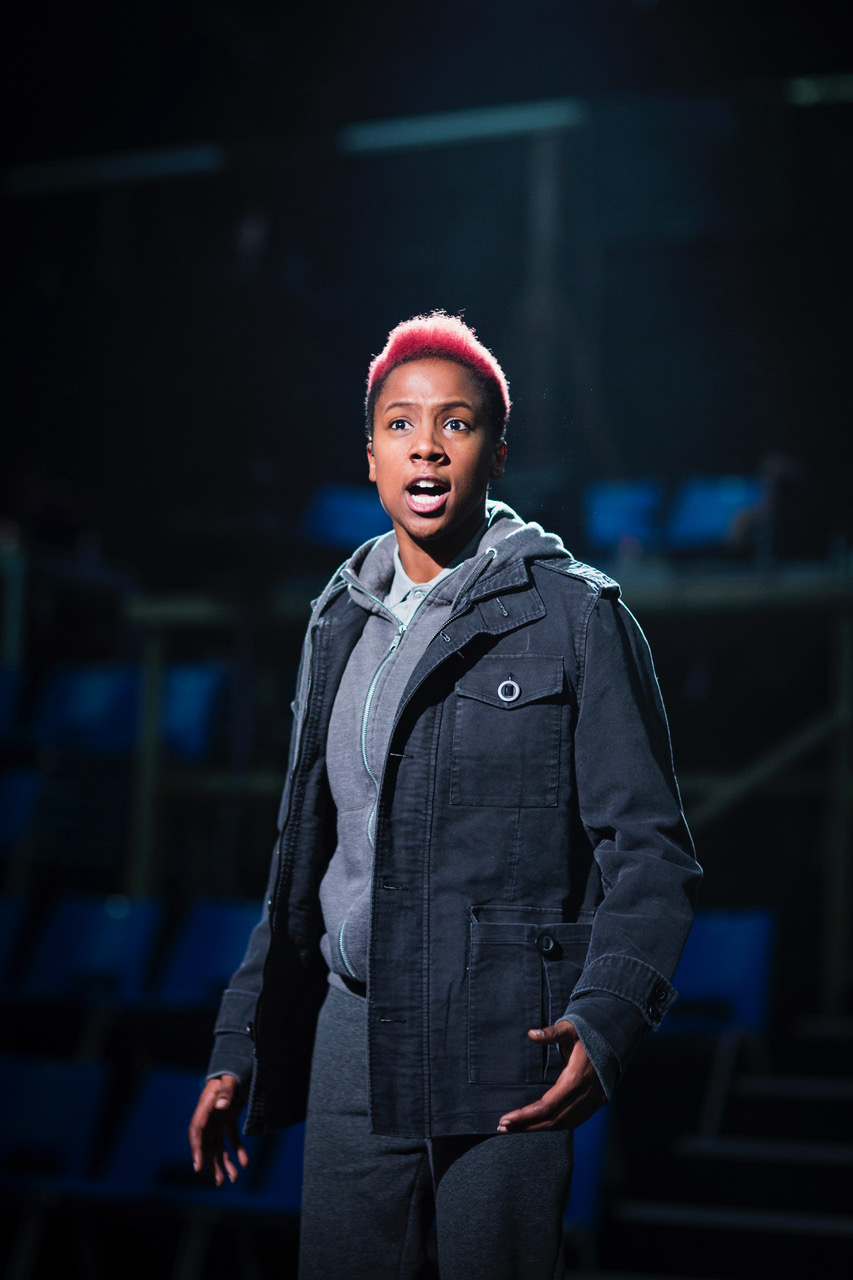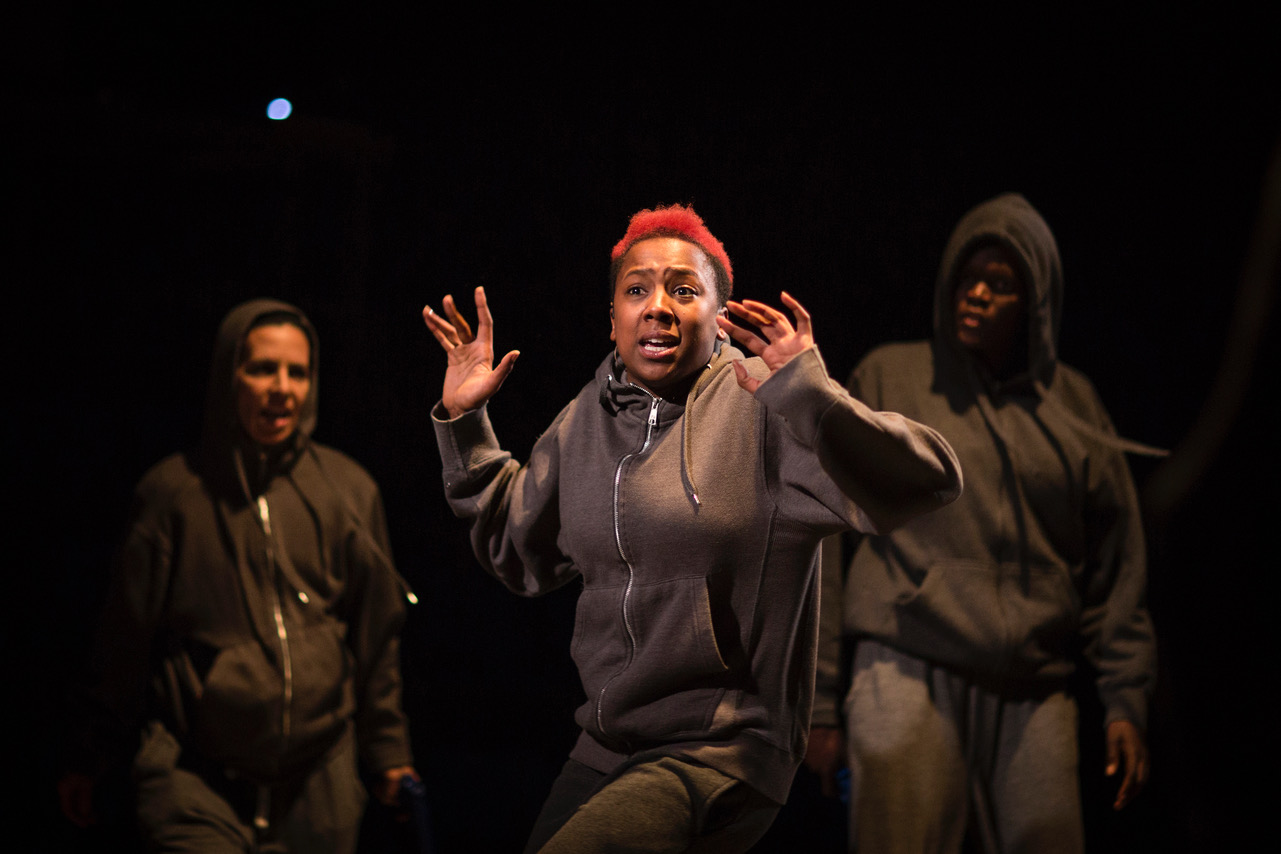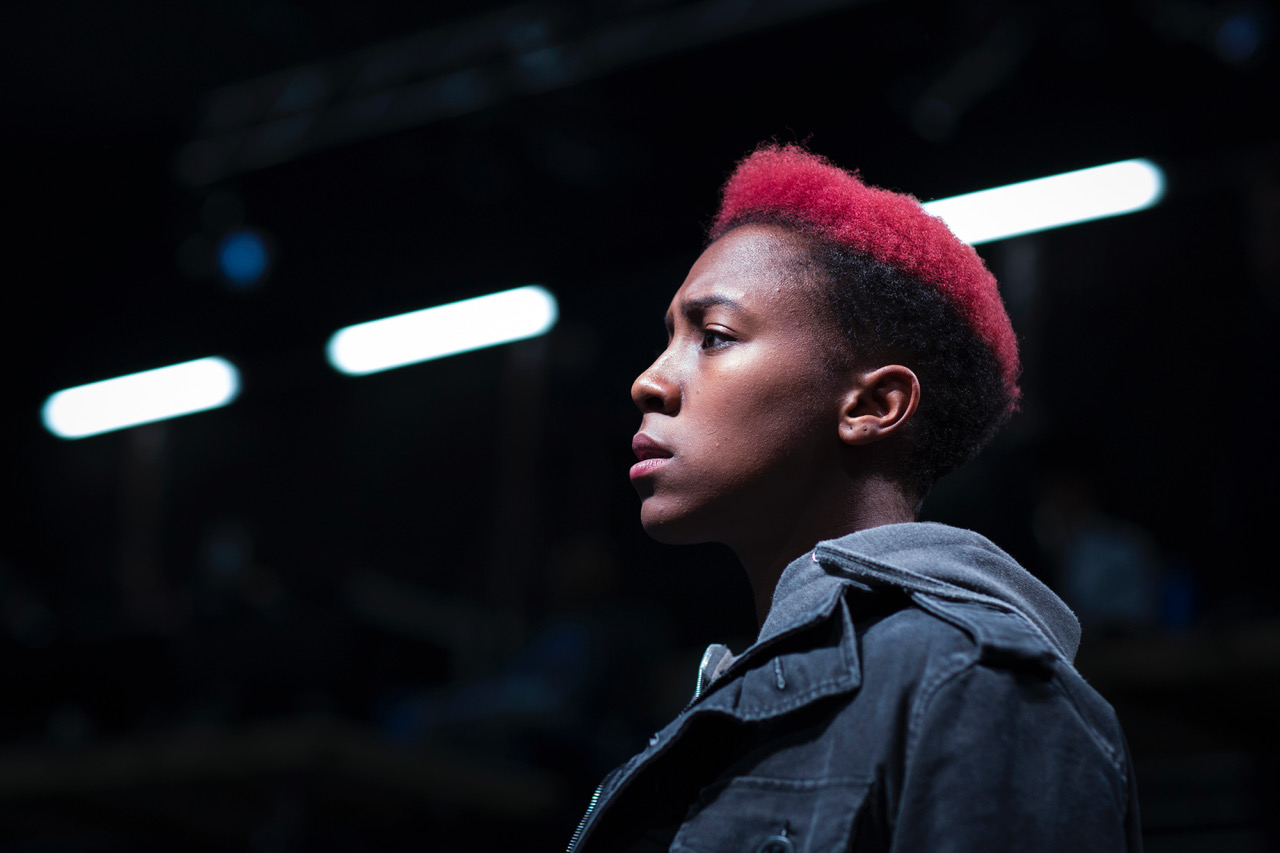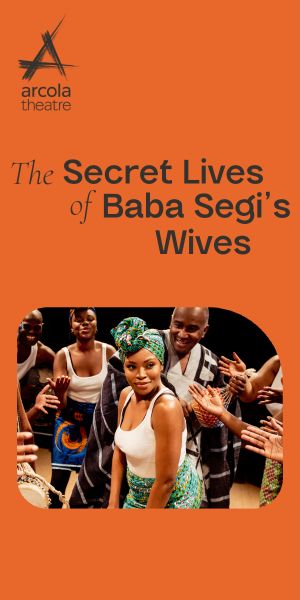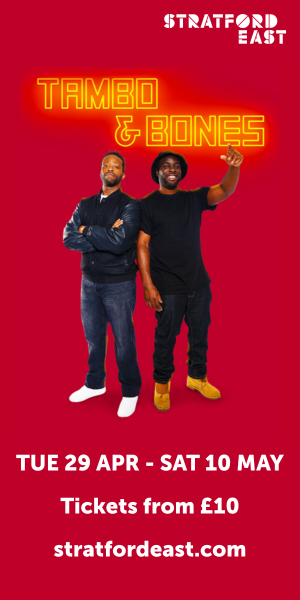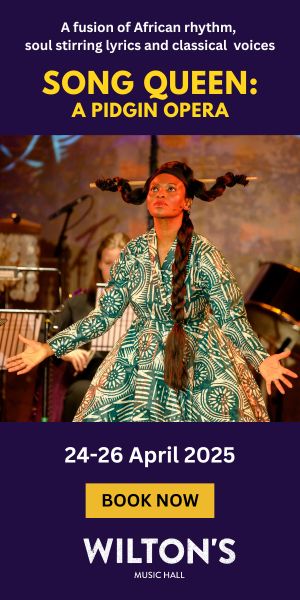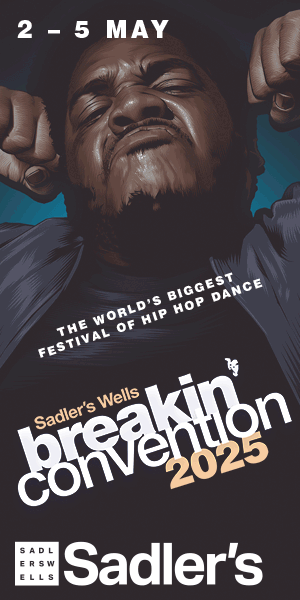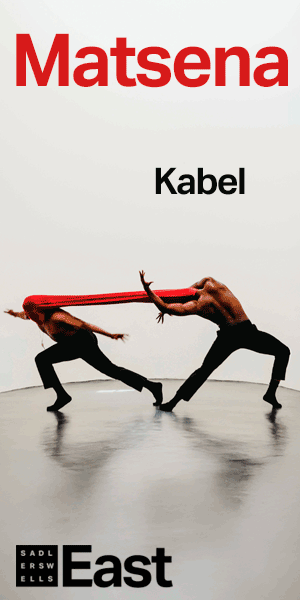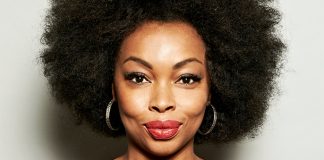Afridiziak Theatre News spoke to Jade Anouka who is part of The Donmar Warehouse’s trail-blazing all-female Shakespeare Trilogy, part of BBC Four’s Hear Her season. The full Trilogy, Julius Caesar, Henry IV, and The Tempest, is available on the BBC iPlayer for six months. Jade Anouka recreates the character of Ariel in Shakespeare’s Tempest.
How did you get involved with such a huge project?
Starting out I was a bit unsure of the Tempest as this play is one of Shakespeare’s toughest ones for me as it doesn’t fit into your normal themes. It’s not a romance, it’s not a comedy, its not even a tragedy like what is it? What is the Tempest about?
I think it was a dream Shakespeare had one day after one too many.
It’s true, you know, that might be what happened! As soon as we put all the three plays into the context of a prison in the overall production of the trilogy, it all started to make sense. Everyone in life is struggling and searching for peace, freedom, revenge, forgiveness, and justice. Then it started making sense and now I love it.
Starting out I was a bit unsure of the Tempest as this play is one of Shakespeare’s toughest ones for me as it doesn’t fit into your normal themes
How were rehearsals?
They were amazing as well as difficult. Starting out with Julius Caesar worked, Henry IV worked and then by time we got to the Tempest we were not sure how it was going to work. We had to figure out how we were going to show the magic of this supernatural play and really make it work? Ariel is such a cool character and is usually played with hi-tech gym or acrobatic equipment to create the visuals of his otherworldliness, but we didn’t have such equipment available to us in a prison so finding something special about Ariel was interesting. We tried many different things that ended up on the rehearsal room floor and then we landed on movement and dance which really worked so things started taking shape.
How was the experience of being in an all-female cast and doing Shakespeare?
We immediately just faced the setting of being in an all-female prison so that answers the casting and then there’s no concern about why women are playing male characters. It’s like if you go to an all girls school and have to put on a play, someone has to act the male roles, someone has to be Romeo. For Shakespeare I have to admit that it was hard to get into Julius Caesar, as it was quite a stretch for me.
I’m this young girl from South East London so for me to try and pretend to like rural Rome was a stretch of my imagination. Even as an actress you still have to find something about the role that you can connect with, but for Shakespeare you have to dig deep. On the other hand, it was easier for me to imagine myself being a step away from prison, that sounds funny but sadly it’s true prison is easier to imagine then ancient Rome especially for women. In preparation for this we did a lot of research on prisons, and particularly women in prison, and so many female prisoners are in there for nonviolent crimes or because of a connection to a guy who is a criminal.
From this research and reading so many real stories I could imagine myself in that position as it’s a more familiar story than a Roman Emperor or a magical storm, any one of us might know someone in prison and we hear about it in the news or our communities so often that I could make those connections and put myself in that role quite easily. None of us are that far away from the possibility of being in prison, sadly it is not a far step to make. Then going into my character I became that woman in prison putting on a play for inmate entertainment and through those layers I could start to see the characters for the Shakespeare plays take shape and it actually made it easier to get my head around it and then things became much more fun and detailed.
Ariel is such a cool character and is usually played with hi-tech gym or acrobatic equipment to create the visuals of his otherworldliness, but we didn’t have such equipment available to us in a prison
Being part of an all-female cast was great and very interesting. When we were doing dance or stretching and warm up we were not worrying about wearing certain things such as what to wear or how to bend, as generally you don’t want to be exposing yourself or stretching over some guy. Its little things like that that you don’t even realise have been a concern before until there are no guys there. We felt free to talk about anything, we weren’t censoring ourselves. I didn’t even realise that I was censoring myself until I did this, I don’t think anyone realises that they are censoring themselves and adapting what they say until you go back in a rehearsal space that is mixed. With women you can talk about anything, like tampons or cramps or moods with mutual understanding. We’d even be talking about the everyday sexism hashtag and the things that happen on our daily commute and everyone gets it there’s not one person looking confused or asking what we’re on about!
Would you do it again then?
I think variety is the spice of life, I really loved the experience and I’d do it again but I do still love working in mixed groups with men and women. You need that in society, or it becomes unbalanced. But there’s definitely a place for it and it is necessary just to show what women are capable of.
How has your career been developing? Watching you in Trauma (ITV) was amazing, what was that experience like?
That was incredible it was one of my biggest tv roles to date and working with Adrian Lester was just amazing, he was brilliant and took me under his wing. I’ve always watched his work and admired him and wanted to work with him, so it was a great opportunity. Also working with John Simms was incredible he’s such a talented actor. I was surrounded by legends and I was just learning so much invaluable stuff on that job, really soaking it in.
How did you get into acting?
I was an energetic kid and used to be into athletics until we moved away from my local club. Then I got involved with a Saturday acting club as I didn’t want to join the rival athletics team which was now closer. At first I did it as a hobby and never saw acting as a job as I didn’t see anyone around me doing that for a living when I was growing up. It never occurred to me to take it on as a career until my Sixth form drama teacher got me a scholarship in the National Youth Theatre and things changed for me when I met other actors and saw that this could be my future. I then trained for four years.
What have you got lined up in the future?
I have a few things lined up. A TV series called ‘Cleaning Up’ and it’s going to be on ITV, later this year. I’ve also got a play up in Manchester Royal Exchange Theatre called Queen Margaret and I’m the lead, so that is exciting. It is more Shakespeare, the brilliant Jeanie O’Hare retells The Wars of the Roses through the eyes of the extraordinary Margaret of Anjou, wife of King Henry VI using the original Shakespeare text and actual letters from the woman herself. It’s going to be wonderful and I recommend taking a trip up to Manchester.
What keeps you going in this business?
I have a passion and I remind myself why I got into it in the first place. You don’t go into this for money, no you go into it because you enjoy it and have a passion for acting. I would tell anyone considering this life to stay creative, sometimes it can be hard to stay creative as you might do jobs that might not feed your creativity but you have to find your creative outlet. I write poetry for my own outlet and I need that for myself. You have to find something you can control as in this job you’re not often in control of the casting decisions that take place and these decisions affect your career so do something for yourself that you can control.






















